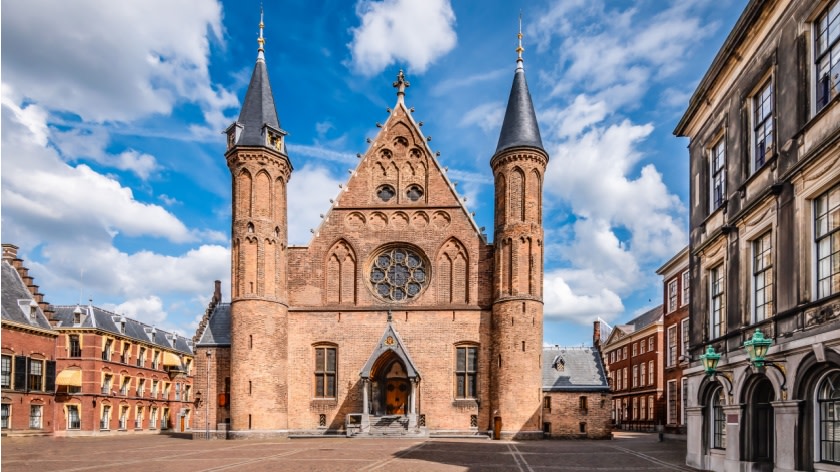Dutch Macro - Political turmoil increases further heading into the Dutch elections

Today marked yet another tumultuous day in Dutch politics. The troubled Schoof cabinet, which already had a caretaker status since the far-right PVV quit the coalition early June over migration, saw another coalition member quit last Friday. The recently formed, centre-right NSC, which is under pressure due to very unfavourable polling, quit the coalition over imposing tougher measures on Israel due to the war in Gaza. This leaves the Schoof cabinet, consisting now of only the centre-right liberal VVD and the right-wing BBB, with just 32 seats (76 needed for a majority). A coalition party quitting a caretaker government is unprecedented in the Netherlands and set Dutch politics on an unclear path ahead. The outcome of today’s debate in Parliament on the way forward was that, despite the slim majority, with elections near, there is no support for a vote of no confidence, this would only increase political instability, not decrease it. Instead, the coalition continues, as it stands now until a new government is formed, with the VVD and the BBB filling the vacant ministerial posts.
What does it mean for the 2026 budget and elections?
The minority on which the caretaker coalition rests, requires the government to gather support from the opposition parties to pass upcoming legislation, which de facto was already the case when the PVV quit and NSC was still in the coalition. One important near-term issue is the 2026 budget, to be announced at ‘Prinsjesdag’ (Budget Day) on the 17th of September. Opposition parties will likely only offer support for a policy-light budget, which in any case was already expected given the caretaker status. No major policy changes were to be expected, next to some funding for new nitrogen policy and perhaps small purchasing power measures, such as lower fuel levies, as was reported on last week. Major themes such as solving the many supply-side bottlenecks that constrain the economy and ramping up of defense spending are left for the next government.
With only 2 months left before the elections, parties are already fully in campaigning mode. The latest polls, which obviously can change a lot still, signal already significant shifts in voting intentions. At the time of writing it is unclear if the events of last week have major implications for the election results. In the debate today there even seemed to be a silver lining; the recent upheaval and the fragile support that the current caretaker coalition has left, have led to calls for a quick formation process, which would be welcome as the length of recent formation periods would imply a new coalition to only be formed in Q2 next year.

Political turmoil more commonplace, raising the need for strong new government
The political turmoil we have seen over the past months does not stand on its own. Since 2020, the Netherlands only had a mandated government for 60% of the time, with governments having a caretaker status the rest of the time. Meanwhile the country and economy require decisive reforms and investments, for instance in solving the many supply-side bottlenecks such as the nitrogen crisis, electricity grid congestion and the housing shortage. Political fragmentation and as a result longer government formations have contributed to this but also the long period before elections are held. For instance, in the current situation, the government fell in early June and elections were scheduled 5 months later. In that regard a speedy formation process and a coalition that can build on a strong majority in Parliament and in the Senate - elections scheduled in 2027- is welcome following the October 29th elections. Ideally it would also offer a clear policy plan that reduces currently elevated domestic policy uncertainty
